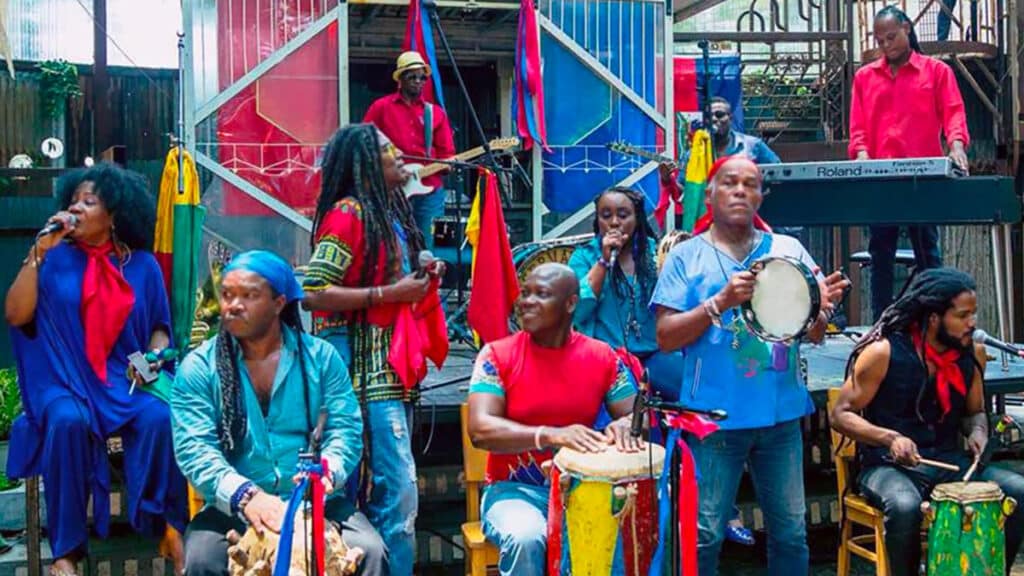Boukman Eksperyans is one of Haiti’s most famous musical groups. Their mizik rasin is a form of Haitian roots music that blends Haitian Vodou traditions with rock and reggae. That places it in the Latin alternative frame.
Boukman Eksperyans in New York City

East Williamsburg, Brooklyn
Boukman Eksperyans plays Haitian mizik rasin (Haitian Vodou rock reggae) at the Konpa Kingdom show with Wyclef, Tvice, Ekip, Stakz, and TonyMix & Friends; at the Brooklyn Mirage at Avant Gardner in East Williamsburg, Brooklyn; on Labor Day Monday, September 2, 2024 at 7pm. From $90. 🇭🇹
New York City Venues
- Avant Gardner in East Williamsburg, Brooklyn
- Lincoln Center in Manhattan
Boukman Eksperyans
Boukman Eksperyans was founded in 1978 by the Beaubrun family, in particular Theodore Beaubrun, Jr. (Lolo). The social consciousness of American rhythm and blues (soul music) had a big impact on African Diaspora musicians around the world. Lolo lived for a time in New York City where he was influenced by the Black Pride of James Brown and Bob Marley. He wanted to bring the same pride into Haitian music.
“Boukman” is a reference to Dutty Boukman, an early leader of the Maroons (Free Blacks) and the Haitian Revolution. They called him Boukman because he was a man of The Book (The Koran). Islam and Vodou are two of the great religions of Mother Afrika. Boukman was present at the Vodou ceremonies where the Revolution was planned. The “Experience” part of their name was inspired by The Jimi Hendrix Experience rock band (1966-1970). You can hear the Hendrix influence here and there in the music.
The band was first noticed at Port-au-Prince Carnival in 1990 when their song “Ké-M Pa Sote” (YouTube) became a protest song against the military government. That put the band in danger.
Voudou Adjae
The first Boukman Eksperyans album in 1991 was nominated for a Grammy. It captured the spirit of the times in Haiti. 1991 was a time of change. President Aristide was overthrown in a coup d’etat, and the band had to go into exile for a time.
When countries have an identity crisis, people look to their roots, and Vodou is very much part of Haitian roots. Many Haitians believe that the Vodou religion is what enabled them to overcome human slavery and found a free nation. There is nothing bad or scary about Vodou. It’s a beautiful, highly-developed religion just like all other religions. The scary stories are Hollywood nonsense written by American soldiers after the occupation of Haiti (1915-1934). They saw the Kongo religious traditions that are central to Haitian Vodou and completely misinterpreted them from a Christian point of view that makes no sense at all.
Anyway “Vodou Adjae” is still a great album after all these years. You can hear many different influences that combined in a uniquely Haitian way becomes influential itself. God bless Haiti Cherie!
More Information
boukmaneksperyans.com
Facebook @BoukmanEksperyans
Instagram @boukmaneksperyans

